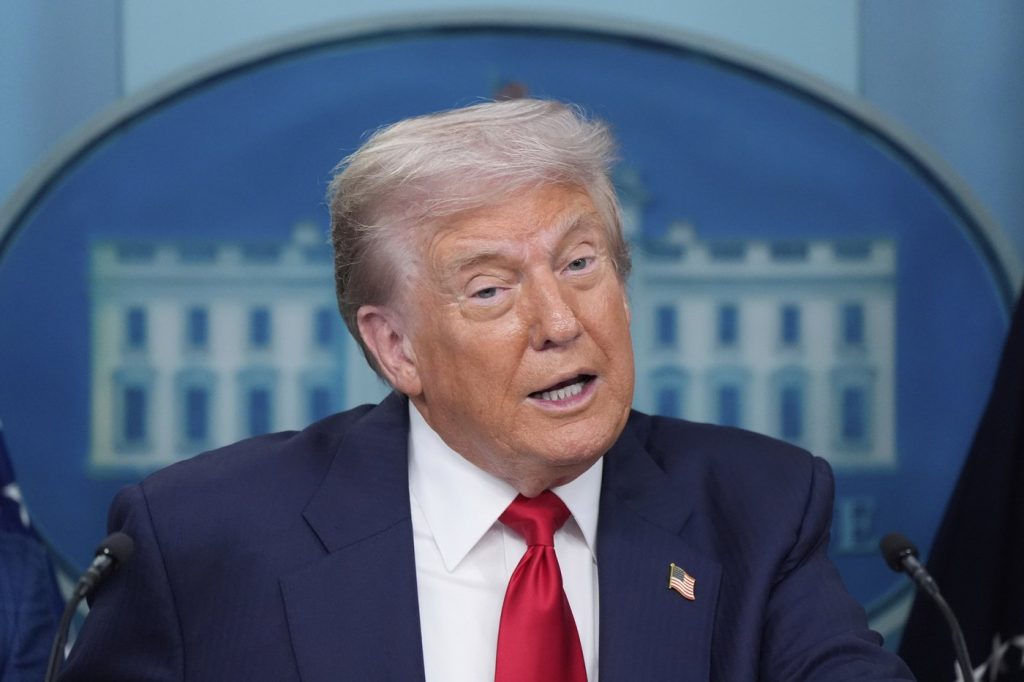Appeals Court Rules on Trump Administration's Foreign Aid Funding Suspension
On Wednesday, a divided panel of judges from the U.S. Court of Appeals for the District of Columbia Circuit ruled that the Trump administration possesses the authority to suspend or terminate billions of dollars in congressionally appropriated foreign aid funding. This decision stems from an executive order issued by Republican President Donald Trump on January 20, the first day of his second term in office, which directed the State Department and the U.S. Agency for International Development (USAID) to freeze foreign aid spending.
In its ruling, the appellate court found that two of the three judges determined the plaintiffs, who are grant recipients contesting the funding freeze, did not meet the necessary criteria for a preliminary injunction that would restore the flow of funds. The majority opinion notably did not address whether the federal government had acted unconstitutionally by infringing on Congress’s spending authority.
U.S. District Judge Amir Ali had previously ordered the administration to release the full extent of foreign assistance that Congress had allocated for the 2024 budget year after receiving challenges from groups of grant recipients. However, the appellate court's majority partially vacated Judge Ali's directive, implying that the plaintiffs had failed to present a valid legal foundation for their claims to be heard.
Judge Karen LeCraft Henderson and Judge Gregory Katsas, who formed the majority, emphasized that they need not resolve the scope of the district court’s remedy because the grantees had not fulfilled the requirements for a preliminary injunction. Judge Henderson elaborated on this point, stating, “The parties also dispute the scope of the district court’s remedy but we need not resolve it … because the grantees have failed to satisfy the requirements for a preliminary injunction in any event.”
In opposition, Judge Florence Pan dissented, pointing out that the U.S. Supreme Court has unequivocally established that the president lacks the authority to ignore laws for policy reasons. Judge Pan criticized the majority opinion, arguing that it enables the executive branch to avoid accountability for constitutionally questionable actions. She remarked that the majority misinterpreted the separation-of-powers claim posed by the grantees and misapplied legal precedent.
The funding in question includes nearly $4 billion designated for global health programs through USAID and over $6 billion specifically allocated for HIV and AIDS programs. President Trump has characterized foreign aid as wasteful spending that does not align with his administration’s foreign policy objectives. The implications of the court’s ruling could significantly affect health and humanitarian initiatives that rely on this funding.
In terms of judicial appointments, Judge Henderson was nominated by Republican President George H.W. Bush, while Judge Katsas and Judge Pan were nominated by Donald Trump and Democratic President Joe Biden, respectively. The political affiliations of the judges underscore the polarized nature of the court and its rulings, particularly in cases involving executive power and legislative authority.
The ruling not only highlights the complex intersection of law and politics but also sets a significant precedent for future foreign aid policies under the Trump administration and potentially beyond. The outcome has sparked debates regarding executive authority and the boundaries of presidential power relative to congressional spending. As discussions continue across the political landscape, the future of foreign aid and related programs remains uncertain amid such legal challenges.











